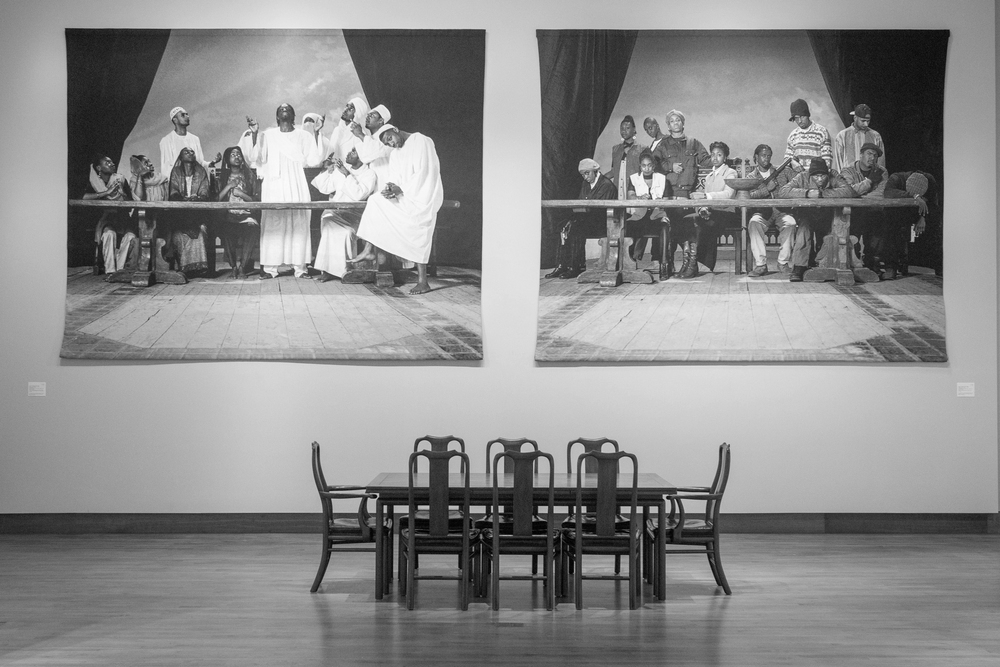
COME TO THE TABLE
first performed on January 20, 2020
Chazen Museum of Art
performed five times in 2020
SPATULA&BARCODE
Laurie Beth Clark and Michael Peterson
Madison WI
660910412s660910412p660910412a660910412t660910412u660910412l660910412a660910412a660910412n660910412d660910412b660910412a660910412r660910412c660910412o660910412d660910412e660910412@660910412g660910412m660910412a660910412i660910412l660910412.660910412c660910412o660910412m
spatulaandbarcode.net/
COME TO THE TABLE
SPATULA&BARCODE
“Come to the Table” staged a series of public dinner conversations about Generosity, each focused on a different sub-theme: Art, Care, Hospitality, Philanthropy, Refuge and Civic Engagement.
The series was initially planned for a live presentation in the Chazen Museum, where experts and stakeholders gathered around our own dining room table. We cooked dinner for our guests and served on ceramics created for the project by Hannah Schelb. Gallery-goers were able to pass by or stop to listen in.
To create “Come to the Table,” we collaborated with Chazen curators who selected works from the museum’s permanent collection that elaborated the conversation themes. Pictured here with our table is “The Last Supper” by Faisal Abdu’allah.
In anticipation of the dinners, at the opening reception, the general public dropped by our table with food pantry donations and shared their thoughts about whether and how art is or can be generous.
Medical professionals and ethics scholars joined artists and curators gathered to discuss the ethics and politics of care, caring for death and dying, and how to care for caretakers. Restaurant professionals, housing advocates and administrators joined artists and curators to think about what hospitality does and how it works, how social norms shape hospitality expectations, and what makes for hospitable places and communities.
In retrospect, these conversations in February and March seem painfully oblivious to the ways that the lives of these experts would be abruptly and radically changed by the pandemic. When the museum closed in March due to COVID-19, the project moved to Zoom and the public could listen in. What was lost in intimacy was gained in access, what was a local event became a global one.
Donors, fundraisers and artists considered how we choose to give and when, how philanthropy is fostered, whether philanthropy is generous, and how the pandemic will change philanthropy. A minister, immigration activists, scholars of human rights, and a curator explored the international systems of asylum and our understanding of others as deserving of protection.
In response to the political upheavals of 2020, we added an epilogue conversation with a state representative, a police oversight board member, community organizers, activist scholars, and socially-engaged artists to think about the generosity of public service, forming just communities, the privilege of being included in existing systems and the challenges of changing them.